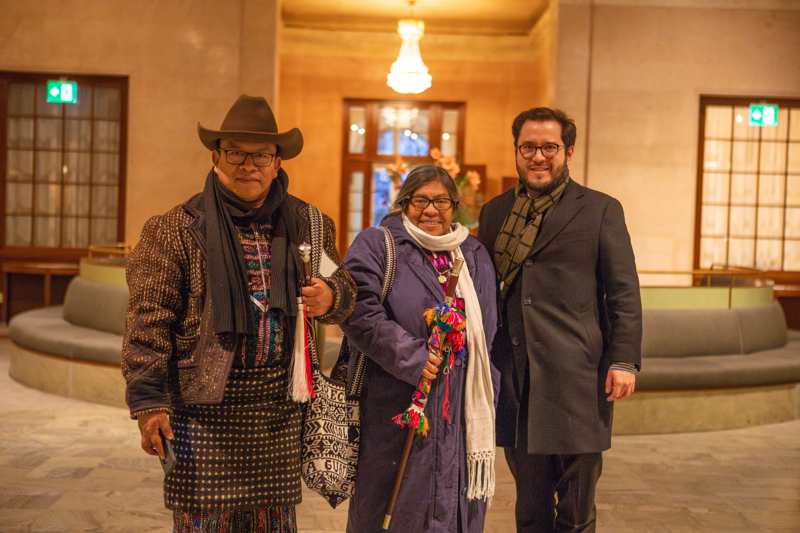
Guatemalas nya president ger hopp om framtiden
– Arévalo är en ljusfackla i ett ändlöst mörker, och det är förstås därför man försöker stoppa honom med alla medel, säger Alvaro Montenegro, guatemalansk journalist som tvingats i exil i USA.
Alvaro har som miljontals andra guatemalaner levt många månader i en blandning av hopp och skräck. Vad ska hända den 14:e januari?
Nu vet vi. Bernardo Arévalo har nu, efter fördröjning och osäkerhet in i det allra sista, tillträtt som Guatemalas president. Det är inte en överdrift att säga att det är en dramatisk förändring. Han kommer med ljus och hopp och står för något som bara för ett halvår sedan var närmast otänkbart.
Guatemala har blivit allt mindre demokratiskt, allt mindre rättvist, alltmer korrupt och totalitärt. Men nu ändras riktningen, och därmed blir Guatemala närmast en anomali. För det sker i en tid då demokratin i världen går bakåt nästan överallt, och populistiska ledare oftast bubblar upp på extrema högerkanten, med mer eller mindre oliberala, rasistiska, polariserande och patriarkala värdegrunder.
Många försök att stoppa tillträdet
Makteliten i Guatemala – en allians av krafter från storkapitalet, politiska eliter, militären och dominerande media – har alltid lyckats stoppa och ogiltigförklara alla hot mot deras position. Men Arévalo och hans parti Movimento Semilla var så små, så obetydliga, att de slank igenom. Till slut var bara två kandidater kvar i en slutomröstning, som Arévalo vann i en jordskredsseger.
Chocken, och glädjen, var enorm.
Detta var i augusti 2023, men det är först nu den nya presidenten tillträtt. Systemet – eller ”den korrupta pakten” som de omnämns i folkmun – har försökt använda alla juridiska möjligheter de har att ogiltigförklara Arévalo och Semilla.
Demonstrationer på gatorna
Men det gick inte. Stöd från omvärlden har varit effektiva påtryckningar. Och hela hösten har gator och torg fyllts av pro-demokratiska folkmassor, runtom i hela Guatemala. Ingen skulle få stoppa demokratin denna gång.
Och till slut står vi här, det omöjliga blir möjligt. Semilla kommer från en miljö av civilsamhällesorganisationer som IM stöttat i decennier, där kampen för demokrati och allas lika värde och rättigheter varit centralt.
– Arévalo företräder inte en liten elit eller en särskild grupp, han kan tala med alla och förena oss. Med honom kan vi bli vad vi en gång var på 1950-talet – en riktig demokrati. Plötsligt öppnas nya dörrar! säger Alvaro Montenegro.
Idag firar Guatemalas alla fattiga, alla fängslade journalister och demokratiarbetare i exil, och alla diskriminerade och nedtryckta människor från ursprungsbefolkningen maya.
Det finns ett ljus i mörkret.
